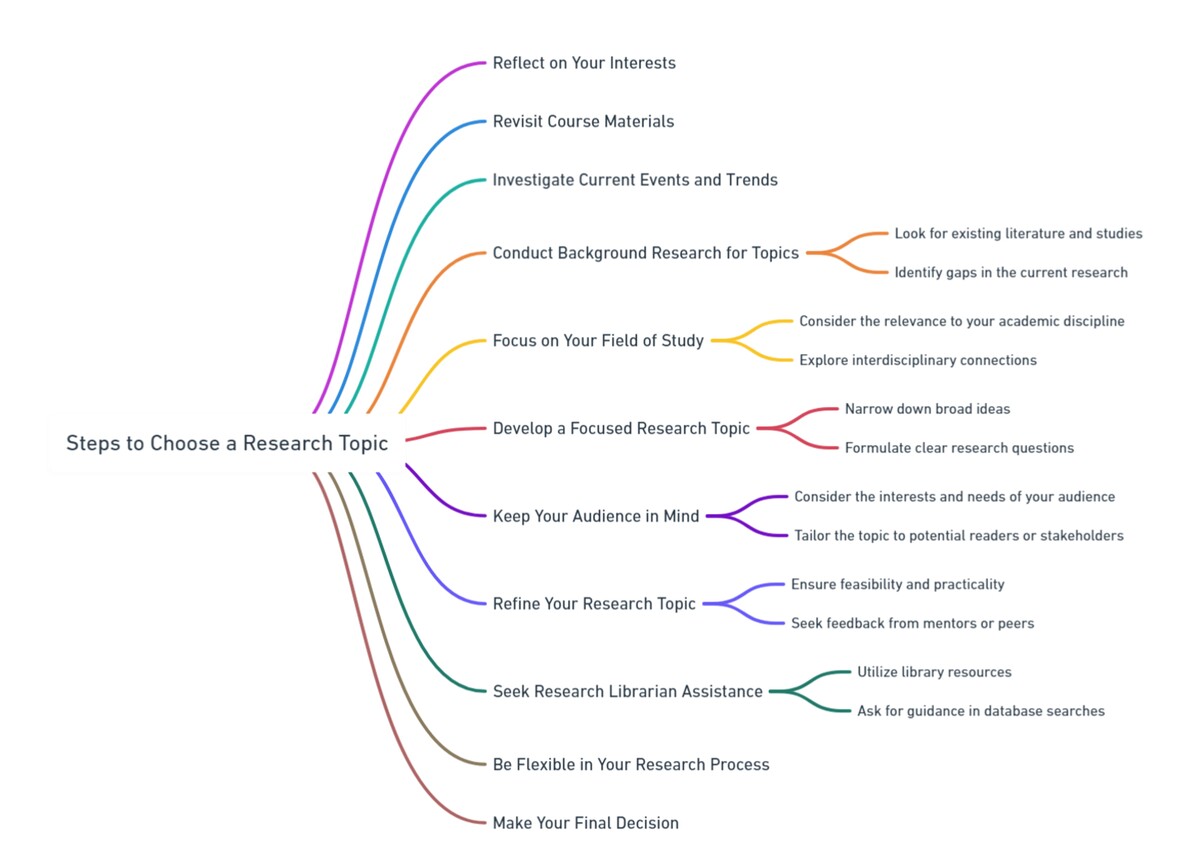How to Find a Research Paper Topic?



Finding a suitable research paper topic can be a challenging yet exciting endeavor. A well-chosen topic reflects your interests and provides a solid foundation for a successful paper. Here’s a comprehensive guide on how to choose a research topic that resonates with you and fits within your field of study.
Begin by contemplating subjects that intrigue you or areas you wish to explore further. Think about the courses you enjoyed, books that captivated you, or themes you would like to investigate more deeply. Your genuine interest in a topic will not only make the research process more enjoyable but also keep you motivated throughout your work.
Take time to review your class notes, textbooks, and readings. Identify themes or interesting research topics that particularly captured your attention during the semester. Often, compelling research questions arise from concepts you've studied but haven't yet fully explored. This can be an excellent starting point for your research paper.
Stay informed about current issues, scientific advancements, or social trends relevant to your field of study. Reading news articles, academic journals, or credible blogs can spark ideas for timely and relevant research topics. Consider how these issues affect society or contribute to existing knowledge, and think about how your research could provide new insights.
Once you have a few topic ideas in mind, do some preliminary research to see what has already been discussed in those areas. Utilize academic databases like Google Scholar, JSTOR, or your institution’s library resources. Additionally, perform exploratory research online to find unique and niche topics that may not be widely covered. This can help you pinpoint gaps in the literature that your research could address. Resources like Credo Reference Unlimited, Gale Virtual Reference Library, and CQ Researcher can provide a wealth of information.
Ensure that your topic aligns with your specific field of study. Choosing a subject within your discipline not only enhances your understanding but also makes your research more relevant to your academic and professional goals. Whether you're in psychology, biology, education, or any other field, the topic should reflect the themes and issues prevalent in your area of expertise.
Turn your interests and observations into specific research questions. For example, if you are interested in climate change, you could ask, “How does climate change affect agriculture in my region?” Crafting focused questions can guide you toward a more specific and manageable research topic.
Think about who will be reading your paper. What are their interests and expectations? Tailoring your topic to your audience can enhance the relevance and engagement of your research. If you are writing for a specific journal or academic body, consider their focus and scope to ensure your topic aligns with their interests.
After listing potential topics, narrow your options down to a few that seem most promising. Evaluate the scope of research topics: Is it too broad or too narrow? Make sure your topic can be adequately addressed within the constraints of your research paper assignment requirements, including time, length, and resources available for research.
Discuss your topic ideas with classmates, professors, or mentors. They can provide valuable insights and help you refine your ideas. Engaging in discussions often leads to new perspectives or directions you might not have considered. Additionally, research librarians can assist you in finding scholarly articles and sources relevant to your interests.
Keep in mind that your topic can evolve as you conduct research. Stay open to adjusting your focus based on what you learn. It's common for researchers to refine their questions or shift their approach as they gather more information. This dynamic research process can lead to a more meaningful and impactful study.
Choose a topic that excites you and aligns with your academic goals while also being rooted in your field of study. Ensure it is specific enough for in-depth research yet broad enough to find adequate sources. Once you have finalized your decision, you can begin outlining your research plan!
Finding a focused research topic may require some time and thought, but it is a crucial part of the research process. By exploring your interests, reviewing existing literature, and searching online for unique angles within your field of study, you can discover a topic that fulfills your academic requirements while also igniting your passion for research. Good luck and happy writing!
If you have any questions, inquiries, or would like to learn more about our services, please don't hesitate to reach out to us. Our dedicated team is ready to assist you.